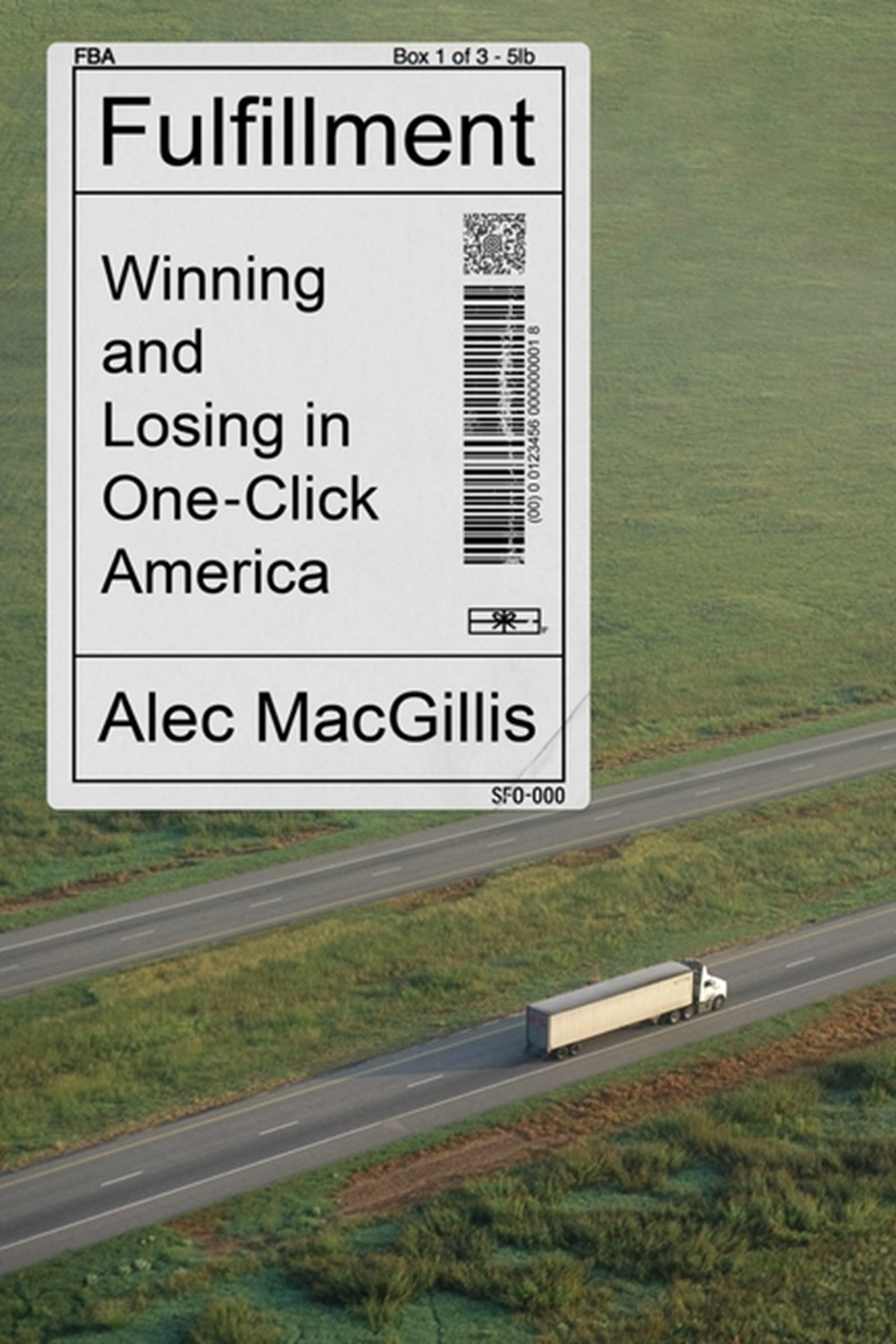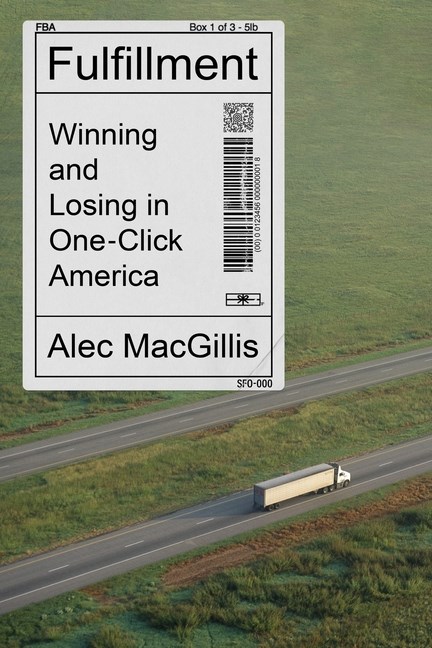Fulfillment: Winning and Losing in One-Click America
March 19, 2021
Alec MacGillis's new book on Amazon is not a company narrative as much as it is a narrative of how one company has altered the landscape, often literally, of American life.
 Fulfillment: Winning and Losing in One-Click America by Alec MacGillis, Farrar, Straus and Giroux
Fulfillment: Winning and Losing in One-Click America by Alec MacGillis, Farrar, Straus and Giroux
Some of my favorite writers are the muckraking journalists of the Gilded Age. My daughter is named Ida after her great, great grandmother, but also for Ida Tarbell and Ida B. Wells. It was people like them who proved that, in America, we can counter the influence of powerful interests and continue to improve our ongoing experiment in self-governance through the power of the pen. Reading Tarbell was also probably the first time I was enthralled while reading about business—even if she wasn’t exactly acting as a booster of business. (Not of big business, at least. Much of what she exposed was how Standard Oil crushed competition down to even the smallest independent operators, people like her father—himself an oilman).
So I find it inspiring that we have so great journalists working in that tradition in our midst once again—and distressing that we need them so much. In that vein, Alec MacGillis has turned in what I think will prove to be one of the great narratives of our time in Fulfillment: Winning and Losing in One-Click America. It is not a company narrative, though, as much as it is a narrative of how one company has altered the landscape, often literally, of American life. It is about how the internet, and one company in particular, was sold to us as a tool that would liberate us but has instead kept us more firmly entrenched in our respective places, and deepened the divisions, inequalities, and space between us in the process. As MacGillis writes:
The internet was supposed to let us live and work anywhere we wanted to, connecting us no matter how far-flung we might be. It would liberate us from cubicle and office park, disperse opportunity across the country.
Instead, the opposite happened. Tech entrepreneurs quickly found that location mattered more than ever. It helped to have your company clustered around similar companies because it made it easier to attract employees—not only poached from the company across the street, but those who’d newly arrived because of the area’s reputation as a hub. And for employees in an industry as volatile as tech, it made sense to be somewhere where you could count on getting another good job if the first one fell apart. So you wanted to be in the hub, which in turn drew more employers there, too.
This has always been true to some extent, which is what takes MacGillis to a city sometimes called the Silicon Valley of its day: Dayton, Ohio. It was once an innovation hub where the Wright Brothers got started, and where National Cash Register would spawn so much innovation in technology and in corporate culture and management. NCR was, as you’ll know if you have read Thomas Watson Jr.’s book, A Business and its Beliefs, where Watson’s father Tom Sr. inherited much of his beliefs. He would use them to run International Business Machines and turn it into the global force that we know as IBM, an almost direct line through which Dayton leads to today’s Big Tech titans and Silicon Valley. (I don’t think it’s at all inappropriate to add here that, in his time there, Watson Sr. was among the company brass at NCR convicted of illegal anti-competitive sales practices.)
The difference between innovation hubs of the past and those of today is in just how concentrated they are, and in how severely they concentrate wealth. There has always been regional inequality in our country, but never so severe as exists today. That inequality, using Amazon’s operations across the country and its imprint on individual communities and lives, is the central topic of the book.
The stories MacGillis tells are rooted in the history of each place he visits. To tell the tale of Amazon’s presence in Baltimore, he begins with the history of the area’s previous behemoth, Bethlehem Steel, the dangerous work conditions there and the unionization of workers in Baltimore’s Sparrow’s Point neighborhood. It provides another example, as Amazon workers fight for their own union today amidst dangerous work conditions, of how (as Mark Twain never actually said), though history may not repeat itself, it rhymes. Because, unlike many other Big Tech companies, Amazon does employ a lot of people, and is adding more employees at “astonishing speed.”
As recently as 2012, the company had had only 88,000 employees worldwide. … By late 2019, it had more than 750,000 employees worldwide and 400,000 employees in the United States, the overwhelming majority of them in the company’s more than two hundred fulfillment centers, sortation centers, and other delivery facilities. … And this was before the hiring spree that would arrive with the global pandemic of the spring of 2020.
Documenting the living and working conditions of those who toil in those centers, now a center of economic activity that has drained much of the human interaction that used to mark the collective life out of our communities, MacGillis exposes how the level of extreme wealth inequality affects our daily life, people’s personal and family lives, across our country.
It is impressive in its emotional depth and its topical breadth. He covers the decline of industrial towns in ways reminiscent of books like Janesville, covers how the opioid epidemic is ravaging people’s lives and the country like Beth Macy’s Dopesick, even touches on the changing media landscape and decline in local journalism that holds local government accountable like Ghosting the News. His examination of lobbying, influence peddling, and wealth swashing around Washington, D.C. and in the states is unlike, and more thorough than, anything I’ve ever read—at least about contemporary America. Like the feeling you sometimes get that America is turning into one giant Amazon company town, it feels like something that can’t be true, that we can’t have let happened, reminiscent of another less enlightened age, but it all sadly and accurately defines the New Gilded Age we’re in. It feels like reading the great muckrakers of the past, imbued with the on-the-ground, oral history of working people you find in Studs Terkel’s work.
The real strength of the book is that, while being a brilliant overview of contemporary life in America using Amazon as its lens, it is a human and social narrative, based in the realities of people’s lives, telling their stories. Chapter One, about the history of Seattle—from a sleepy coastal to a “hyper-prosperous city”—could stand as a great short story of two of its citizens and how they changed as the city changed. The stories of the country Amazon has transformed are the stories of the workers in its warehouses as much as it is of the opulent wealth and influence being accumulated by its owner and executives. It is of a country and people who are struggling, and worth struggling for.



